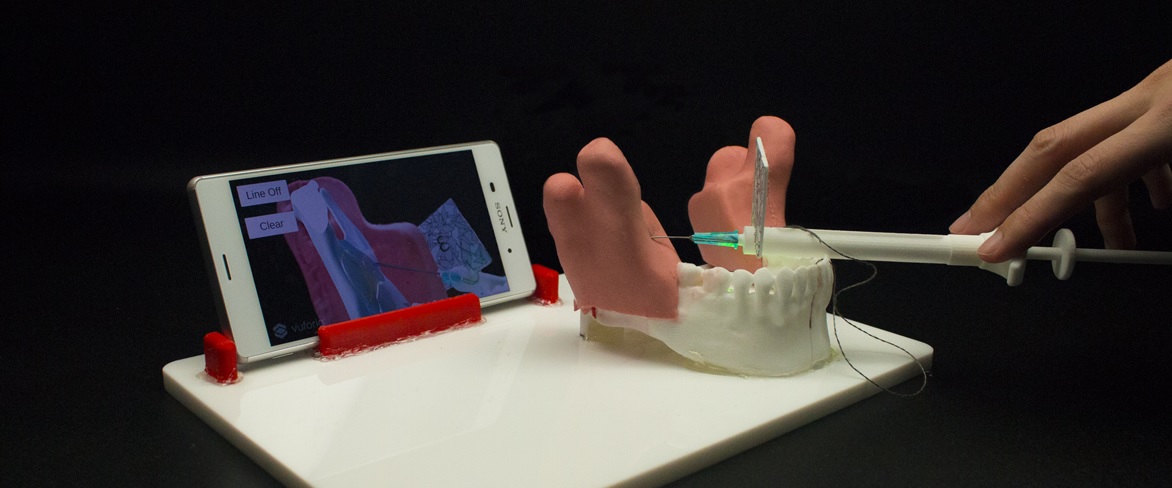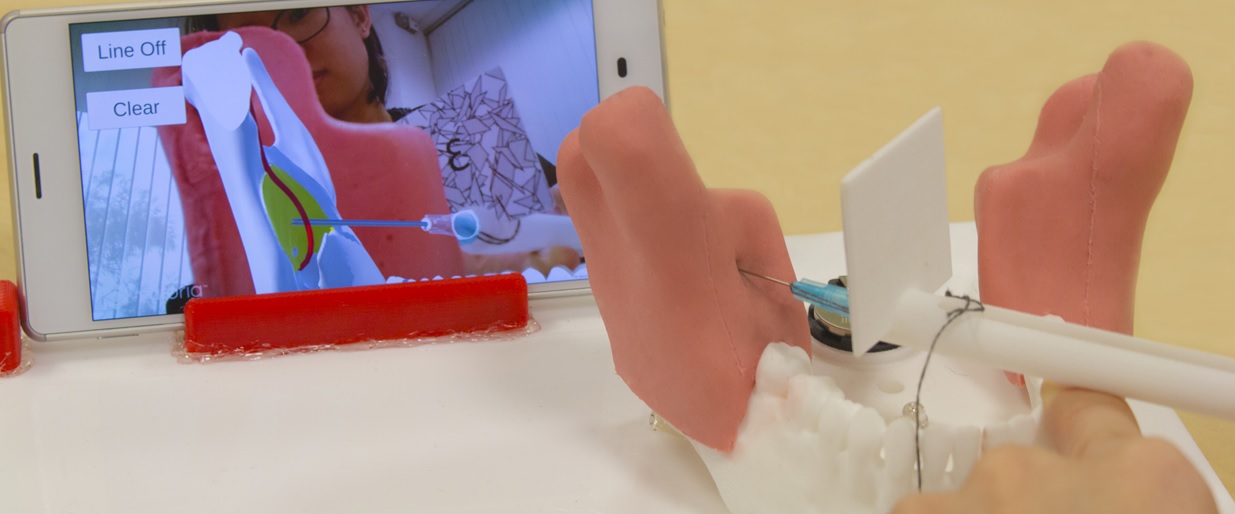
Dental Anaesthesia Simulation
Collaborators
This project was done in collaboration with the Faculty of Dentistry, National of University of Singapore.
Overview
Bridging clinical skills training and anatomy with Augmented Reality (AR) simulation to enhance operative skills competency.
Background
The administration of local anaesthesia on the Inferior Alveolar Nerve (IAN) is a common procedure to anaesthetise the mandible prior to dental operative procedures. Dental students learn the technique through a lecture and watch a live demonstration by instructors of the procedure on a fellow student. Immediately after the instructor’s demonstration, students practice the injection on each other. Being new to giving the IAN injection, students approach this with trepidation as the IAN is close to other important nerves and a major salivary gland and is next to a blood vessel. In penetrating these tissues with a sharp needle, the student must direct the needle tip to a small area next to the IAN. Like all clinical procedures, this injection is not without inherent risks of complications.
Key Problem(s)
There was no intermediary training platform to build procedural confidence, accuracy and efficiency before the students practice the injection on each other.
Objective
This project aims to help students relate the soft tissue oral surface landmarks with the procedure, so that they can visualize the position of the anaesthetic needle in relation to the nerve which they cannot see before.
Solution
The solution combines the 3D printing technology to provide realistic intermediary training platform and AR technology for feedback during training. The jaw is modelled from the patient’s scan data and printed with 3D printing technology and the gelatin is casted with varying density over the 3D model to simulate the gum and muscle layers. The AR technology tracks the needle movement and provides real-time feedback on the students’ performance. The model was designed in collaboration with the dentists, specially on the density and tension of the gum and muscle.
Deployment and Usage
This project was used by the Faculty of Dentistry since 2017. It was showcased at the following locations:
- HCII International 2019
- Innovfest Unbound 2018
- NUS Donor Experience 2018
- KMD Forum 2018
Impact
With the additional visual cue, students were able to know where the needle is in relation to the nerve in order to build their mental model for the procedure. Usage of this model led to increased confidence among students and an increased score in the usability scale.
Gallery


Project Contact
Yen Ching-Chiuan
didyc at nus.edu.sg
Team Members
Mandi Lee
Lau Jo Hanan
Kelvin Foong Weng Chiong
Yen Ching-Chiuan
Genevieve Low